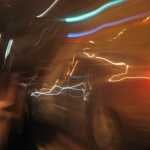
Nella Larsen’s Passing zeroes in on a woman whose ethnic makeup is so ambiguous, she can covertly maneuver the white community. Similarly, Philip Roth’s The Human Stain chronicles a black man so fair-skinned that he also passes. Both stories detail assimilation for the purpose of acceptance: something circumstantially-bound minorities felt they had to do in exchange for easier lives. The inverse—whites attempting to pass for black—is a phenomenon typically reserved for jokes, which Rachel Dolezal's appearance as a blip on the bullshit radar inspired plenty of.
I don't remember this kind of outcry when we learned @desusnice was white
— Petty Wap (@frazierapproves) June 12, 2015Dolezal, an academic specializing in African-American culture and the president of her local NAACP chapter, stands accused of being a white woman purporting to be black. The infraction (which she denies) triggered a jailbreak blitz of slander across various social media networks, but the issue delves far deeper than comedic fodder. The Dolezal scandal represents a disturbing intersection of denial, appropriation, and self-loathing.
By adulthood, we’ve all encountered the type: those so intrusively obsessed with one culture that they masquerade as members of it. Seth Green’s Kenny "Special K" Fisher from Can’t Hardly Wait, a walking parody of ‘90s hip-hop culture seen through the tinted goggles of the misguided suburban white teen, is the base model. But Dolezal reportedly didn’t just want to be someone else, she went to such great lengths to pretend to be it that her own biological parents felt compelled to call her out on what reeks of infiltration. However, Dolezal’s posing predates appearing in a picture with a black man she claimed was her birth father. The people listed as parents on her birth certificate say it began years ago.
This fiasco has unearthed an educational parallel between Rachel Dolezal and myself. We both attended Howard University; Dolezal earning her master’s degree in 2002, while I spent my undergrad years there later in the decade. Her father, Lawrence Dolezal, told the Washington Post that the historically black institution offered her a full-scholarship, adding that it "took her for a black woman":
"You’ve got a white woman coming in that got a full-ride scholarship to the black Harvard," Lawrence Dolezal said. "And ever since then she’s been involved in social justice advocacy for African Americans. She assimilated into that culture so strongly that that’s where she transferred her identity."
Furthermore, Dolezal's adopted black brother, Ezra Dolezal, explained to BuzzFeed News that her experience at Howard was somewhat turbulent:
"She used to tell us that teachers treated her differently than other people and a lot of them acted like they didn’t want her there," Ezra said. "Because of her work in African-American art, they thought she was a black student during her application, but they ended up with a white person."
He said that the experience made her angry, and it was then that Rachel started being "hateful to white people."
This shouldn't have to be articulated, but devotion to civil rights isn't reserved for minorities, just like you don't have to be black to attend an HBCU. I knew white kids who majored in African-American studies at Howard, where I also had white professors. You can be white and still carry an intense passion for racial equality—that actually strengthens the effort’s potential success. But disguising yourself to do this is so blatantly counterproductive to both the movement and one's own credibility. Bringing acknowledgement of who you are and the privilege attached to that adds value to non-minority understanding of why justice advocacy is critical. There’s a fine line between wanting to help and wanting to be, one Dolezal blurred until now.
The image that Dolezal has projected to the world is that of a black woman. Pictures of her sporting a head of curls are meant to be more Kelis than Streisand; the braids more Beyoncé than Bo Derek. Yet her mother’s assertion that this is merely a mask donned after her parents adopted four black children is a dose of truth that grates like nails on a chalkboard. Her claims that she’s been a victim of over a half-dozen hate crimes are as troublesome as her parents saying she's positioned one of her adoptive brothers as her son. More damning is Ezra Dolezal's revelation that she ordered him not to "blow [her] cover."
For all of Dolezal’s work within the black community, she should understand that #TeamNatural isn’t an all-season Halloween costume. Being black isn’t a game you get to play, and screaming "hate crime" isn’t part of it. But Dolezal’s racial identity is no more complex than any unresolved adolescent identity crisis. What’s more, any ridiculous comparisons of her situation to that of Caitlyn Jenner’s should be ignored because this isn’t about who or what Dolezal identifies herself as—it’s about who she is. Identifying with black people isn't a permit to classify yourself as black; you're either black, or you aren't.
That explains her juking a reporter’s question about her ethnicity like Barry Sanders.
Dolezal should thoroughly digest Kendrick Lamar's advice: You don’t have to try so hard, or at all. Her endeavors wouldn't have been any less effective or authentic if she were honest with everyone—primarily herself.
Julian Kimble is a contributing writer. Follow him @JRK316.

